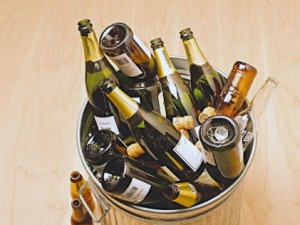
Binge drinking causes insulin resistance, which increases the risk of Type 2 diabetes, according to the results of an animal study led by researchers at the Diabetes Obesity and Metabolism Institute at the Icahn School of Medicine at Mount Sinai. The authors further discovered that alcohol disrupts insulin-receptor signaling by causing inflammation in the hypothalamus area of the brain.
Diabetes mellitus type 1 vs 2:
Diabetes mellitus type 2 (formerly noninsulin-dependent diabetes mellitus (NIDDM) or adult-onset diabetes) is a metabolic disorder that is characterized by high blood glucose in the context of insulin resistance and relative insulin deficiency.This is in contrast to diabetes mellitus type 1, in which there is an absolute insulin deficiency due to destruction of islet cells in the pancreas.
What is Insulin resistance?
Insulin resistance refers to a state in which a given concentration of insulin is associated with a subnormal glucose response.Insulin does not bind properly to the receptor, thus hampering its ability to send the right signals to cells so they can use glucose for energy. This can happen even when the pancreas is producing enough insulin to keep glucose levels under control.
"Insulin resistance has emerged as a key metabolic defect leading to Type 2 diabetes and coronary artery disease (CAD)," said Christoph Buettner, MD, PhD, senior author of the study and Associate Professor of Medicine (Endocrinology, Diabetes and Bone Disease).
"Someone who regularly binge drinks even once a week, over many years, may remain in an insulin resistant state for an extended period of time, potentially years," said Dr. Buettner.
Binge Drinking Increases Risk of Type 2 Diabetes study details
In this study, the researchers simulated human binge drinking by giving rats alcohol for three days. Another group of rats acted as controls; they had the same calorie intake as the binge drinking rats, but without consuming alcohol. Once alcohol was no longer detectable in blood, glucose metabolism was studied through either glucose-tolerance tests or through controlled-insulin infusions.The binge drinking rats had higher levels of circulating insulin than the control rats, suggesting insulin resistance, induced by the alcohol, was the cause, leading to impaired glucose tolerance.
"Previously it was unclear whether binge drinking was associated with an increased risk for diabetes, since a person who binge drinks may also tend to binge eat, or at least eat too much." said Claudia Lindtner, an Associate Researcher of Medicine, Endocrinology, Diabetes and Bone Disease at the Icahn School of Medicine.
she said: "Our data show for the first time that binge drinking induces insulin resistance directly and can occur independent of differences in caloric intake,"
References :"Binge Drinking Induces Whole-Body Insulin Resistance by Impairing Hypothalamic Insulin Action"; Claudia Lindtner, Thomas Scherer, Elizabeth Zielinski, Nika Filatova, Martin Fasshauer, Nicholas K. Tonks, Michelle Puchowicz, and Christoph Buettner; Sci Transl Med, 30 January 2013 5:170ra14; DOI:10.1126/scitranslmed.3005123;

No comments yet.